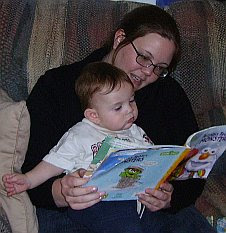
This is a story for all the young linguists out there. Frindle explores how one person can change or impact the English language. Clements creates a realistic classroom within which a child with “plenty of ideas” decides to undermine his teacher’s love of the dictionary. And, really, what child hasn’t hated hearing these words from their teacher, “Look it up in the dictionary!”?
Nick Allen, the boy with all the ideas, is one part trouble maker, one part genius, and one part Jungian archetype. Nick is Jung’s child archetype (think ornery Peter Pan) in more ways than one, and his juxtaposition with Mrs. Granger as the (eventually) wise old “man” archetype makes the story more interesting. Mrs. Granger is more like the dragon from The Dragon’s Boy by Jane Yolen, than she is Hook from Peter Pan. The difference being that Hook just enjoys terrorizing Pan, while the dragon is trying to teach Artos some important lessons—like Mrs. Granger is for Nick.
When Mrs. Granger asks the children to do things they don’t particularly enjoy, one child, Nick, convinces the rest of the children to show their true selves. In the plot of the book, Mr. Granger and Nick butt heads several times over the simple change of the world "Pen" to the world "Frindle." Soon, an all-out battle takes place. Nick wants to prove that he can create a new word and that naming things is arbitrary. Mrs. Granger just wants the children to see that language has a long and rich history.
As the plot thickens, the children come up with more and more ways to defy Mrs. Granger’s rules and Nick becomes more and more set in his convictions of arbitration. Nick “wins” in the end only to find out years later that Mrs. Granger was on his side the whole time.
Nick Allen, the boy with all the ideas, is one part trouble maker, one part genius, and one part Jungian archetype. Nick is Jung’s child archetype (think ornery Peter Pan) in more ways than one, and his juxtaposition with Mrs. Granger as the (eventually) wise old “man” archetype makes the story more interesting. Mrs. Granger is more like the dragon from The Dragon’s Boy by Jane Yolen, than she is Hook from Peter Pan. The difference being that Hook just enjoys terrorizing Pan, while the dragon is trying to teach Artos some important lessons—like Mrs. Granger is for Nick.
When Mrs. Granger asks the children to do things they don’t particularly enjoy, one child, Nick, convinces the rest of the children to show their true selves. In the plot of the book, Mr. Granger and Nick butt heads several times over the simple change of the world "Pen" to the world "Frindle." Soon, an all-out battle takes place. Nick wants to prove that he can create a new word and that naming things is arbitrary. Mrs. Granger just wants the children to see that language has a long and rich history.
As the plot thickens, the children come up with more and more ways to defy Mrs. Granger’s rules and Nick becomes more and more set in his convictions of arbitration. Nick “wins” in the end only to find out years later that Mrs. Granger was on his side the whole time.
Clements creates a classroom with dialog so real, I felt like I was in 5th grade again (however, I still heard those kinds of comments throughout college). His characters are vivid and arc appropriately throughout the story line. The clever twist at the end will give mean, fifth grade, disciplinarian, teachers a better name. This is one of the few stories where the adults are not useless and only to be seen as opponents. Clements gives the adults realistic abilities and even lets the feared adult become the revered adult. In all, the action and timing were right on pace, the characters and plot were involving, and the ending ties everything into a neatly wrapped package. One must wonder… where has my Frindle, uh, pen, gone?
Rating: 4 pages

No comments:
Post a Comment